Our team
One of the great strengths of the Chair is our action research team, which brings together researchers, patients, clinicians, and community members. The exchange of scientific, experiential and professional knowledge is at the heart of our work. Curious and open to new perspectives, our team brings together experts in participatory research, community engagement, medicine, psychology, anthropology, social sciences, public health, management and social innovation. The Chair provides a rich training environment for graduate students and postdoctoral fellows. Open to a plurality of knowledge, our team is the first Canada Research Chairs to be co-directed by a patient on the basis of her experience rather than diplomas.
The Chair is a bridge between science, the clinic and the community. We build new knowledge with patients and citizens. Our work is rooted in shared values of inclusion, respect, collaboration, reciprocity, humility, humanity and community engagement. We view partnering with patients and communities as a relationship, an art and a science. We advance knowledge to support mutually beneficial, inclusive and sustainable partnerships. We evaluate the impact of these partnerships on health and community support. Together, we take care of each other.
Co-direction
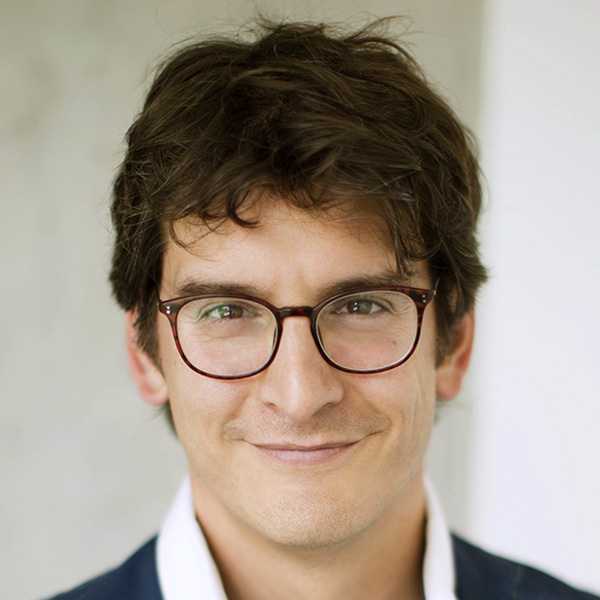
Antoine Boivin
Chairholder and Co-director of the Canada Research Chair in Partnership with Patients and Communities
Antoine Boivin, MD PhD is a practicing physician and the Canada Research Chair in Partnership with Patients and Communities. Working as a family physician in the community of Center-South Montreal, he completed his MSc and PhD in health services research in the United Kingdom and Netherlands. His research program for the past 15 years has focused on patient and citizen engagement in community care, health services delivery, science and policy. He published in the British Medical Journal, the Milbank Quarterly (article of the year), Implementation Science (distinguished article of the year by the North American Primary Care Research Group) and Health Expectations (most quoted articles in 2018). Co-founder and scientific director of the Center of excellence for partnership with patients and the public, one of the largest organizations dedicated to partnership science and practice in Canada, he is co-director of the Quebec SPOR-SUPPORT Unit, where he leads national initiatives on patient and public engagement evaluation. In 2020, he was awarded the Donald I. Rice award for vision and leadership by the Canadian College of Family Physicians.
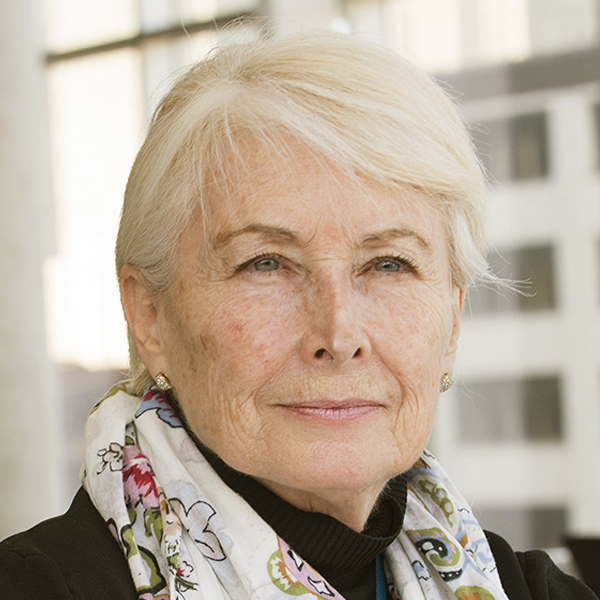
Ghislaine Rouly
Co-director of the Canada Research Chair in Partnership with Patients and Communities – Patient Partner
Ghislaine Rouly has been a patient since birth, living with two orphan genetic diseases and survived three major cancers. She has been in the healthcare field for as long as she can remember and has acquired a unique level of experiential knowledge as a patient and peer mentor accompanying people living with complex medical and social issues. For over 50 years, Ghislaine has been involved in end-of-life care and was a member of the governance committee in 2015 at the CHUM’s Medical Aid in Dying (MAID) and is since member of the Interdisciplinary Support Groups (ISGs) for MAID at the CHUM and the CIUSSS du Centre-Sud and du Nord-de-l’Île de Montréal.
Since 2012, she is involved with the Office of the Patient Partnership (OPP) at the Faculty of Medicine of the University of Montreal. She participates in mentoring, ethics courses, three CSS courses on collaborative practices and also sits on the patient recruiter committee. Ghislaine also acts as a patient partner at the Center of Excellence on Patient and Public Partnership (CEPPP) since its foundation in 2016 where she is co-president of the strategic council.
In collaboration with Dr. Antoine Boivin, she contributes to all of the Chair’s scientific projects in primary care, homelessness, mental health, Indigenous’ health, women’s health, migrants, youth, seniors and end of life. She works as a partner in the entire research and knowledge creation cycle (strategic orientations of the Chair, hiring, student co-supervision and mentoring, protocol development, ethics, intervention design, data collection and analysis and knowledge transfer). She has published 6 articles in international peer-reviewed journals and given more than 70 lectures (including 10 invited international conferences). She is also co-founder of the Caring Community action research program on peer integration in community care.
Her expertise as a patient researcher is solicited by several organizations in North America (MSSS, INESSS, FMOQ, CPCRN, (Canadian Primary Care Research Network), Patient-Centered Outcome Research Institute in the United States) and internationally (France, Ireland, United Kingdom and Japan).
In 2023, she became co-director of the Chair with Dr. Antoine Boivin.
A video portrait (in French) of this co-leader of Caring Community, directed by Julien Forest.
Research professionals
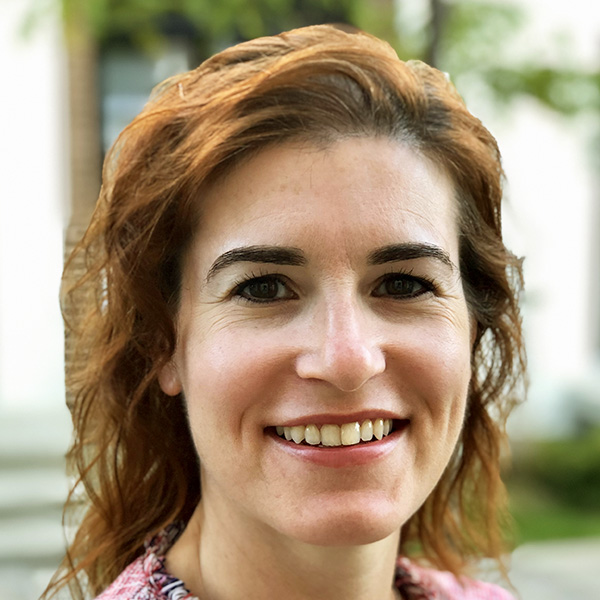
Geneviève Castonguay
Scientific Manager
Geneviève Castonguay is the scientific manager of the Canada Research Chair in Partnership with Patients and Communities. After completing a PhD in community psychology (UQAM), she coordinated numerous public health research projects as a research associate (Institut national de la recherche scientifique, McGill University). In particular, she has conducted projects on the adjustment of older people in institutional settings and the relationship of children with their neighbourhood. She has also coordinated an epidemiological program based on the life course approach and projects to improve access to oral health care across Canada. She has acquired expertise in qualitative, quantitative and mixed methods, as well as in research administration. She joined the Chair in 2019 to put to good use her public health research experience, her deep interest in projects conducted in partnership with the community, and to continue to learn from all those with whom she has the chance to cross paths.
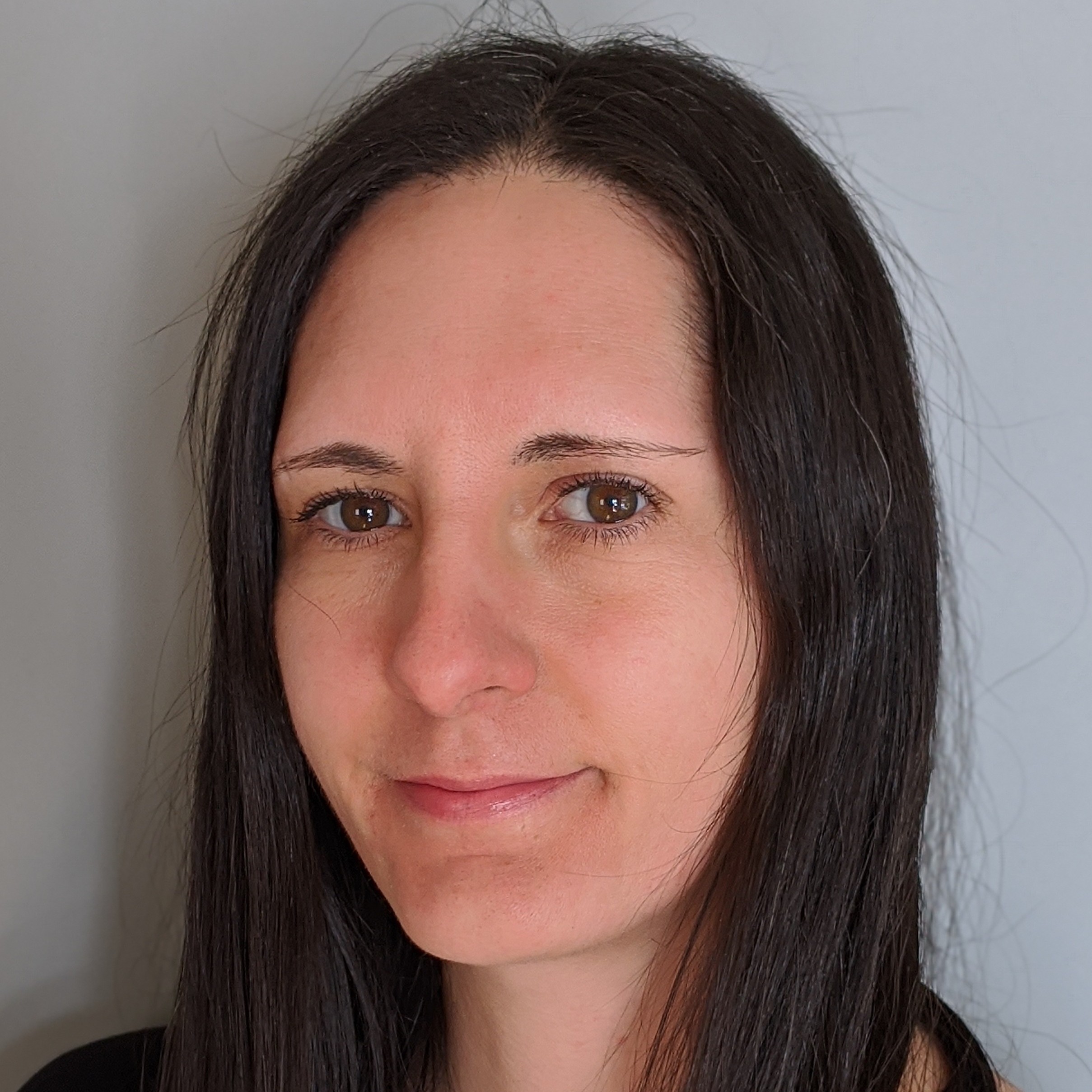
Émilie Lessard
Participatory Evaluation Manager
Émilie Lessard is an anthropologist with a PhD in Population Health. Émilie worked as a family counsellor in a funeral home during her studies in anthropology. This work allowed her to accompany hundreds of bereaved families through the funeral rite process and to deepen her reflections about end-of-life and death in Quebec. She also teaches at the Certificate in Gerontology at the Université de Montréal and has participated in various research projects related to bereavement, access to palliative and end-of-life care. Her doctoral research, a participatory action research exploring experiences of home-based palliative care from the perspective of end-of-life seniors, bereaved caregivers and a specialized palliative home care team in Quebec, has helped to better support the preferences of end-of-life seniors and their loved ones regarding the choice of the place for palliative care and death. By using applied anthropology to population health, she is interested in social inequalities in health (marginal and aging populations), palliative and end-of-life care, pandemic grieving, the compassionate communities approach, and the influence of sociocultural representations of the end-of-life and death on contemporary experiences of dying. She joined the Chair as the participatory evaluation manager, notably for the Compassionate Communities and Caring Community projects.
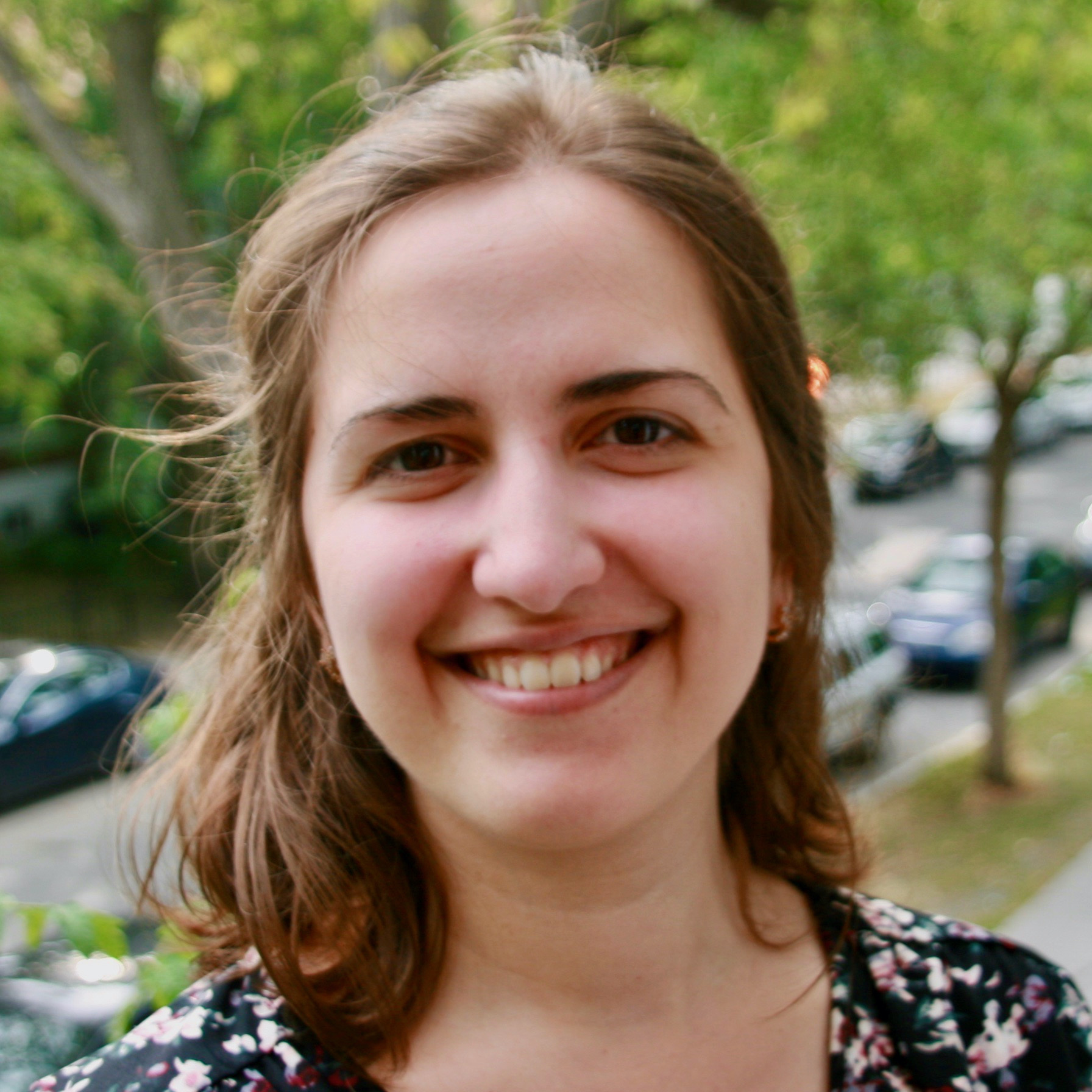
Andreea-Cătălina Panaite
Research Officer
Andreea-Cătălina Panaite is a research officer at the Canada Research Chair in Partnership with Patients and Communities. She graduated from the University of Montréal with a master’s degree in Sociology in 2021, after completing her bachelor’s degree there. During these years, Andreea worked as a teaching assistant at the Sociology Department. She also contributed to a research project on the bereavement experiences of people (un)voluntary without children in Quebec, at the Institut national de la recherche scientifique (2018-2021).
Throughout her career, she developed a growing interest in scientific approaches that recognize the contributions of experiential knowledge, and particularly in qualitative research methods. She joined the Chair in 2021 and is currently coordinating the project Caring Community, a participatory research program on peer intervention in community health.
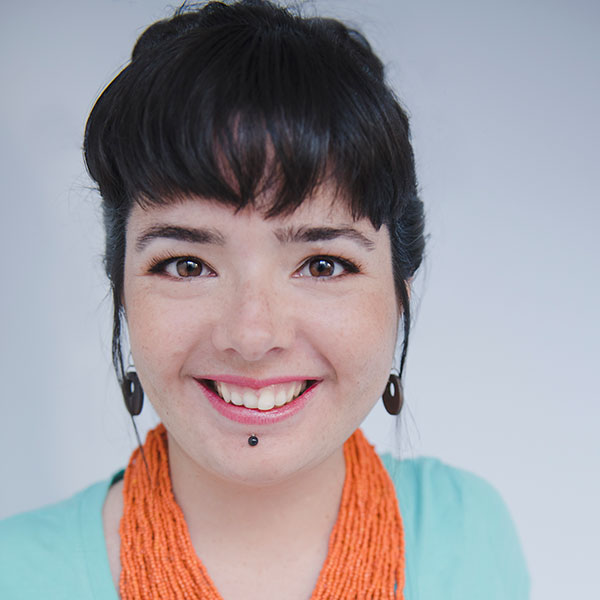
Gwenvaël Ballu
Research officer
Gwenvaël Ballu is a Research Officer at the Canada Research Chair on Partnerships with Patients and Communities. She completed her initial training in multimedia design and holds a bachelor’s degree in psychology from the Université du Québec à Montréal. After 15 years in the communications sector and teaching at the collegiate level, she has worked in participatory research for several years.
She is currently mentoring two young co-researchers and coordinating a project that engages young cancer patients in the research process.
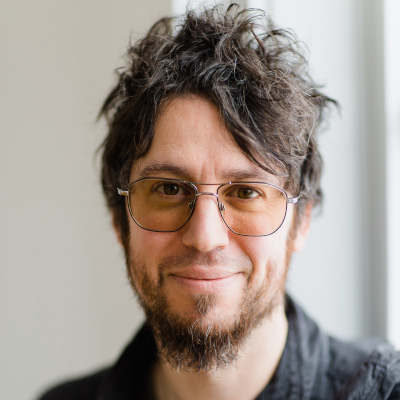
Claudio Del Grande
Research professional
Claudio Del Grande holds a bachelor’s and master’s degree in sociology. An “intellectual jack-of-all-trades”, Claudio is a research generalist who has mobilized his skills in qualitative and quantitative methodologies—from ethnomethodology to randomized controlled trials—with various research teams and organizations in the healthcare ecosystem over the past 15 years.
Claudio is currently completing a PhD in public health at Université de Montréal. As part of his work, he has involved chronically ill patients at a strategic level to consolidate their priorities regarding the organization of primary care in Quebec. His desire is to facilitate and extend patient and public engagement to as many people as possible, to make their voices unavoidable in shaping the future of our healthcare systems.
Peer researchers

Daniel Turgeon
Peer Helper / Research Assistant
Daniel Turgeon has a bachelor degree from Concordia University and studied law in California. Speaks 3 languages and has traveled to 15+ countries.
He also was an entrepreneur for 14 years, which was the center of his universe. When the economy slowed down his company closed and he lost his condominium, car and was alienated from his immediate circle. Now being on social assistance he could no longer afford his rent and saw it as the only option to live in the streets.
What was the most negative aspect of his life turned to something positive. He is now a certified peer helper giving back to the most stigmatized vulnerable population of his community.
His goal is to help those in situations of homelessness to achieve a certain level of normality using active listening, support and navigation.
He also gives conferences to academic, institutional and governmental bodies to change attitudes and form best practices for homelessness.
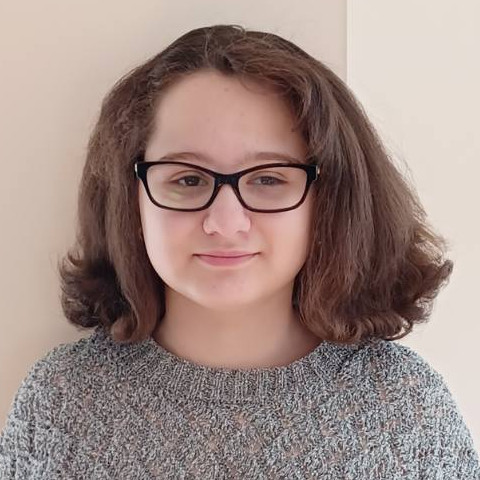
Adela
Young researcher
Adela has been living with cancer since she was 5 years old. Today, she is in remission and plays alto saxophone in a music concentration program. She speaks three languages and loves to communicate.
She joined the research team as a young co-researcher to share her experiences, her vision and to listen to others.
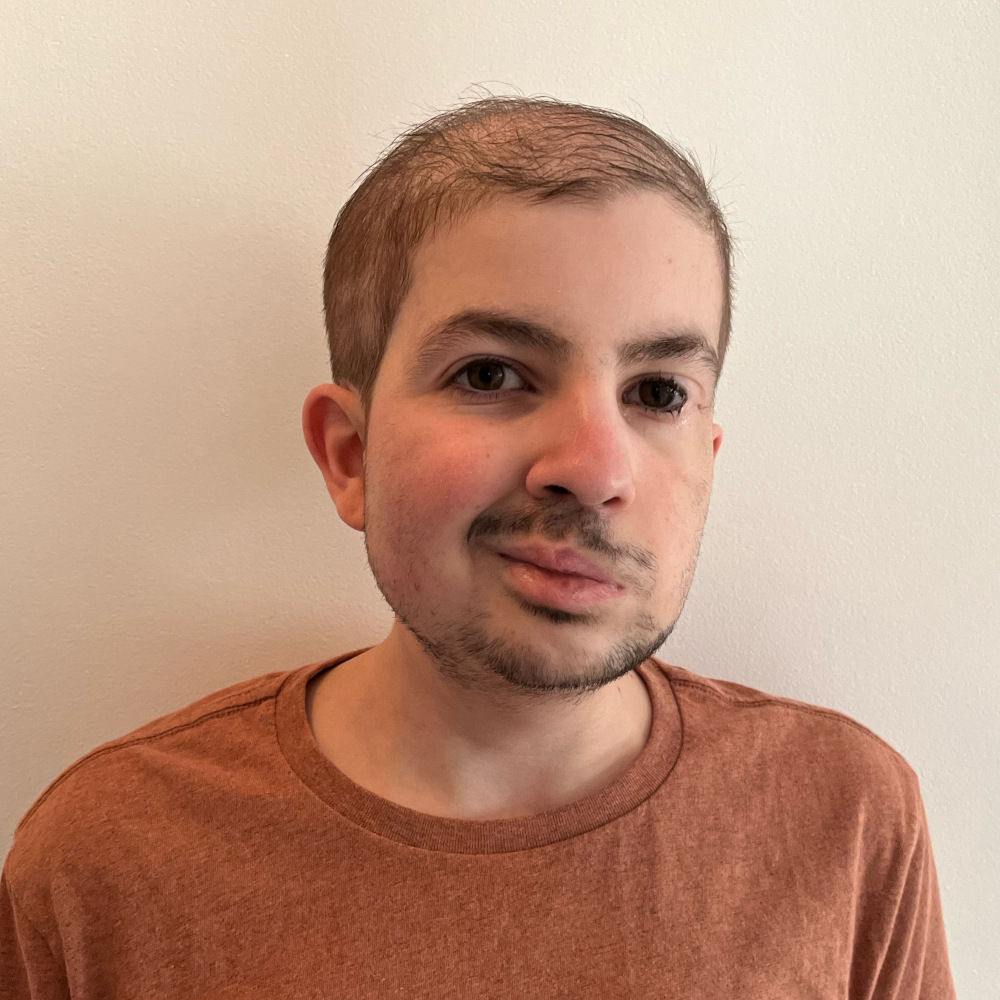
Jacob
Young researcher
Jacob is a cancer survivor. He has battled the unthinkable and with each setback, has become a stronger beacon for others. He is a positive and committed leader in his community. He always gives his best and stands up for children battling terminal illnesses.
He has joined the research team as a young co-researcher to continue to speak out and improve the overall experience of children with cancer.
Students
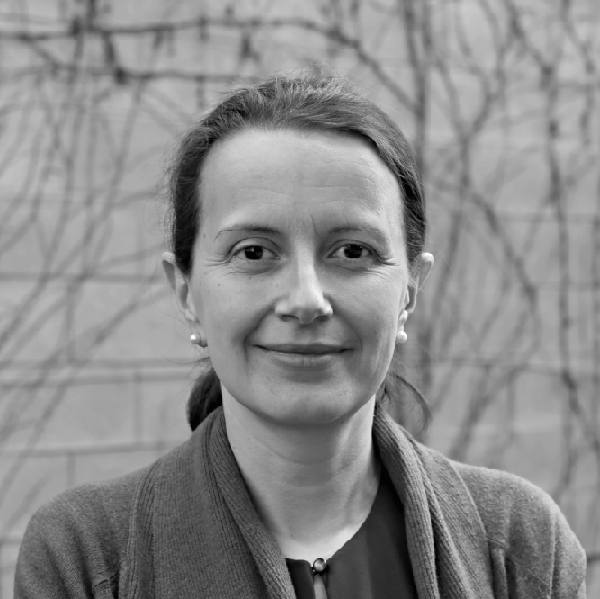
Vera Granikov
Postdoctoral Fellow
Vera is a postdoctoral research fellow with the Canada Research Chair in Partnership with Patients and Communities. As a researcher, an information specialist, and an engaged citizen, Vera is dedicated to contributing to a learning society by promoting health literacy through collaboration and engagement.
Vera has a PhD in Information Studies from McGill University. Her dissertation examined the factors that affect and the outcomes of collaboration in keeping up to date with new information. Vera brings nearly 15 years of experience in health information and patient-oriented research. She has expertise in systematic reviews, mixed methods research (integrating quantitative and qualitative methods), and participatory research approaches. Vera previously worked as a research embedded information specialist and research coordinator at McGill’s Department of Family Medicine. She was actively involved in developing the McGill Primary Care Research Network as its first coordinator, and the Method Development component, now Data Valorization Axis, of the Unité de soutien au système de santé apprenant (SSA) Québec.
Being passionate about the role of information in decision making and participation as patients and citizens, Vera led the development of two educational websites, Online Health Information Aid and Understanding Research. In her community, she initiated digital information literacy workshops in her children’s elementary school. Vera’s postdoctoral research explores how to build critical health literacy capacity by learning together and from each other, in partnership with communities. It is funded by the Fonds de recherche du Québec – Société et culture (FRQSC).
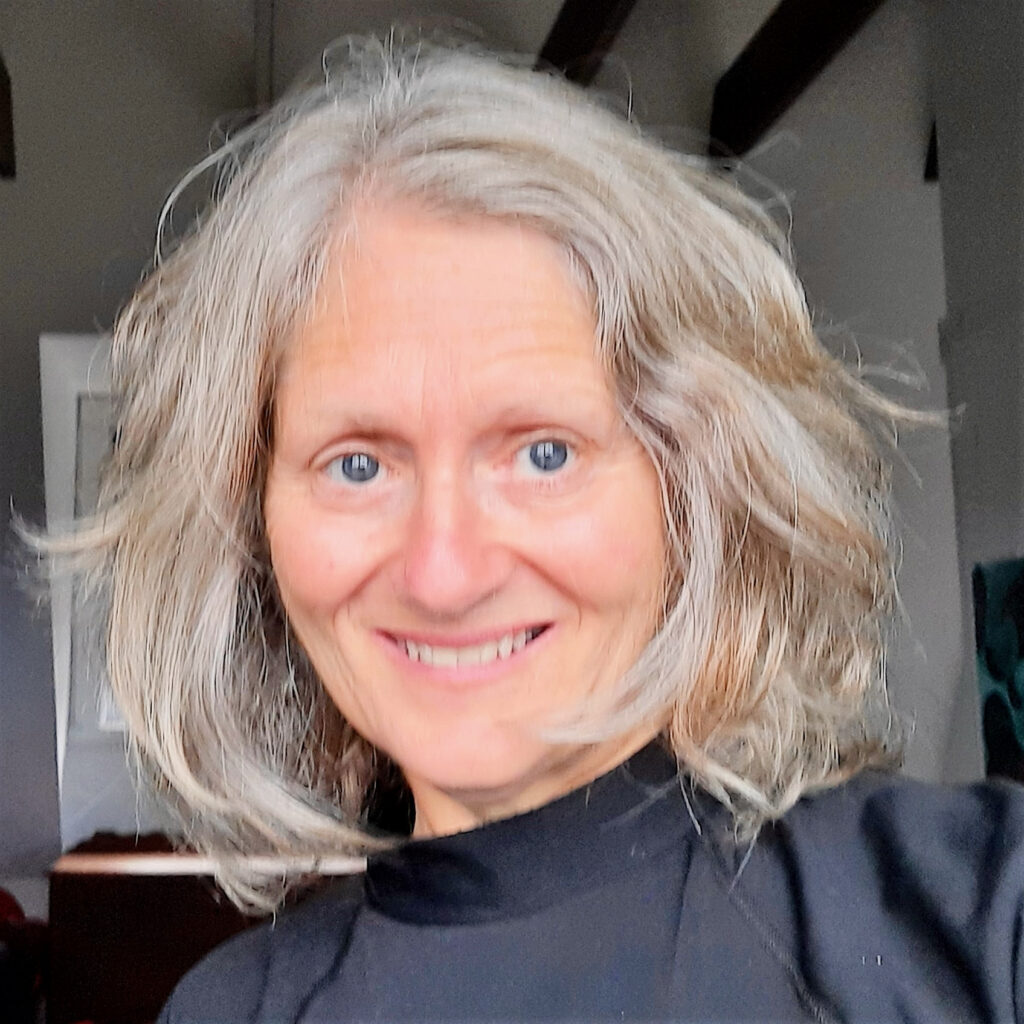
Christine St-Onge
MSc student
Being a midwife — Each woman I accompany in this passage to motherhood remains a reciprocal opportunity for learning and sharing. The partnership with the women characterizes this special relationship. The human connection that continuously develops over the course of the meetings makes it possible to establish this bond of trust. This relationship is built in a climate of welcome, listening, respect and autonomy in an equal relationship. My role is to help women gain autonomy in the process of giving birth. Each birth represents a privileged moment to admire the strength of women in the surpassing of themselves. Each little human being is an indescribable moment of happiness. Beyond the pain of childbirth, the woman will keep a positive memory of it according to the quality of the accompaniment received. This accompaniment makes the practice of midwifery unique. Through my master’s research on the partnership between women and midwives, I hope to contribute to the improvement of services offered to women.
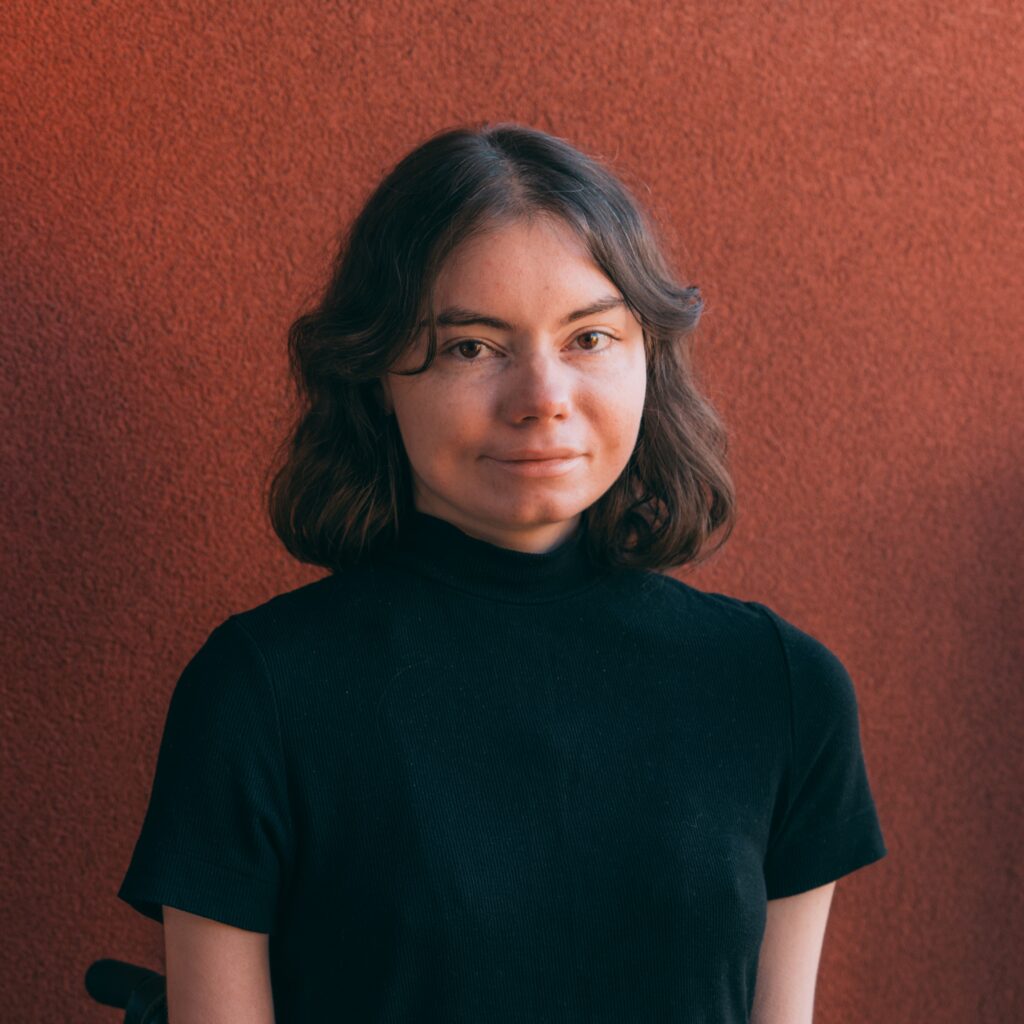
Odile-Anne Desroches
MSc student
Odile-Anne is a doctoral student in public health at the Université de Montréal, specializing in health promotion. She also completed her master’s degree in public health at this university, where her research was carried out with the Canada Research Chair on Partnerships with Patients and Communities and Médecins du Monde Canada. She explored how Indigenous navigators collaborate with nurses in providing care to people experiencing homelessness.
Passionate about participatory methods and the integration of experts of lived experience in prevention and care, she is pursuing her doctoral work with a focus on peer support for people at risk or experiencing homelessness. She is particularly interested in exploring the ways in which peers can contribute to the resilience of care teams as well as that of the people supported by peers.
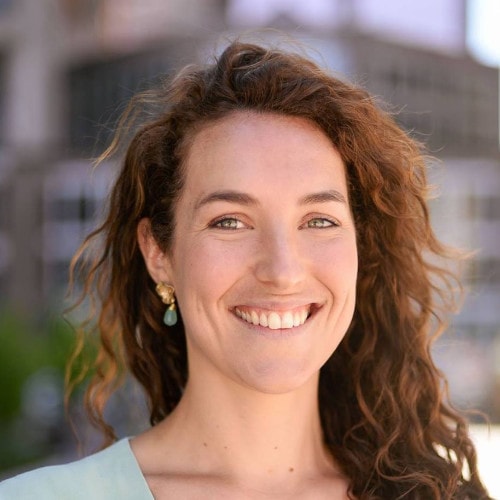
Myriam Fournier-Tombs
PhD student
Myriam is a doctoral student in global health at the University of Geneva and a member of the Canada Research Chair on Partnership with Patients and Communities. She holds a Master’s degree in Health Management and Leadership from McGill University. As part of her master’s project, she collaborated with a Montreal-based women’s shelter to pilot an integrated care model in their proximity clinic. She also holds an osteopathy degree and has worked in the clinical field for nearly ten years, with a particular interest in women’s health. Myriam has worked at the Center of Excellence on Partnership with Patients and the Public since 2018, where she is Lead for the Partnership Network. She is also coordinator of the Axe Partenariat for the Unité de soutien au système de santé apprenant Québec.
Her doctoral research project focuses on the engagement of migrants with precarious status in the co-development of health services and decision-making. Her fieldwork is based in Montreal, and will be carried out in partnership with Doctors of the World Canada.
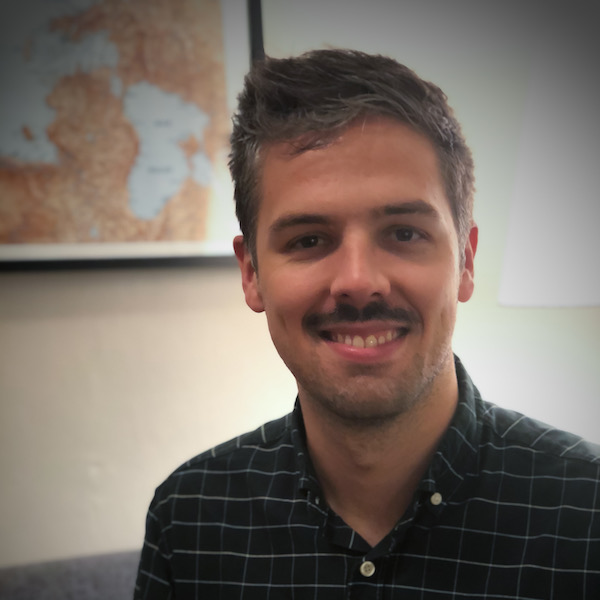
Mathieu Isabel
Clinician Scientist
Mathieu Isabel is a practicing family physician associated with the Université de Montréal Department of family and emergency medicine. He works in a community-based family medicine clinic (GMF-U et CLSC des Faubourgs) and is involved in the supervision and training of future family doctors. There, he also works in the specialized clinic delivering care to homeless individuals and currently acts as the medical director of this clinic. His research interests focus on the analysis of socio-medical interventions with so-called vulnerable populations, most especially with homeless populations. In 2020, he obtained a Masters degree in medical anthropology from McGill University. His thesis explored the concept of relational vulnerability in two different organizations delivering care to homeless people in Marseille, France. He is also a clinician-researcher at CREMIS, the Centre de recherche de Montréal sur les inégalités sociales, les discriminations et les pratiques alternatives de citoyenneté. In our research Chair, as part of the Caring Community project, he is currently co-investigator with Dr Antoine Boivin of a research project looking at the integration of community-oriented care for homeless individuals along with patient and citizen partners.
